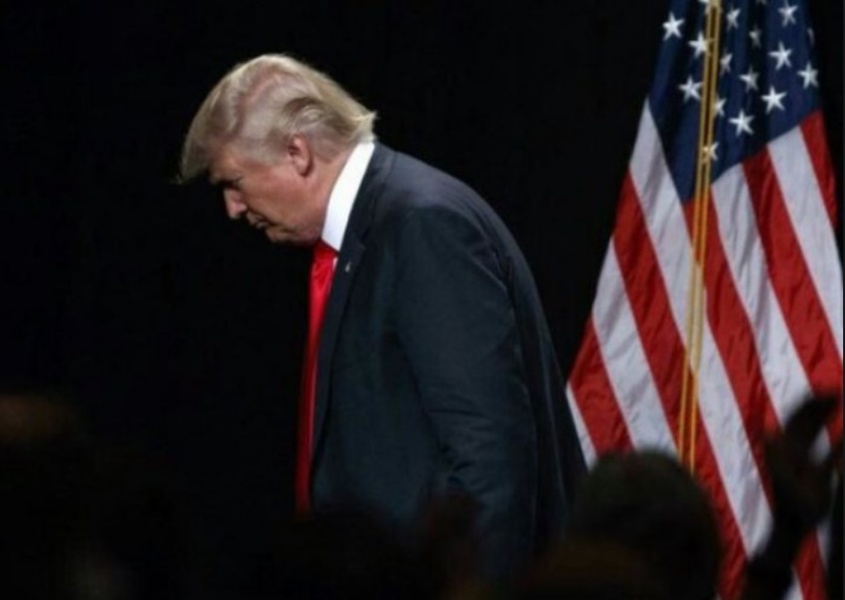
Every day there is a new news story of the anti-Iran measures by the White House’s leader, including the US withdrawal from nuclear deal with Iran, the resumption of nuclear sanctions, the inclusion of the name of the IRGC in the list of terrorist organizations.
A few days ago, US Secretary of State Mike Pompeo announced that Washington will not extend waiver for Iran's oil buyers, including Japan, India, South Korea, China, Turkey, Taiwan, Italy and Greece.
It was not out of the mind that the severely anti-Iranian president, Donald Trump, gradually abolish the oil exemptions, but that the Iranian oil purchasers, some of which are subject to the Trump state's sanctions, would have to accompany the White House.
The initial reaction and objection by the 8-exempted countries to Trump's recent decision indicates that the White House is facing a difficult path to implement the policy of zeroing Iran's oil exports. The 'maximum pressure' approach on Tehran and the 'oil export cut to zero' of the country was raised which coincided with the second round of sanctions, but Washington was forced to retreat under pressure from buyers.
Today, the proceeding this anti-Iranian strategy due to the Trump’s rifts with other states and unilateralism on the global scene will not be easy, as can be seen in the reactions that followed the abolition of oil exemptions.
Except for some of the few regional actors, such as the Zionist regime and Saudi Arabia, who welcomed the decision of the United States to designate the Islamic Revolution Guard Corps on the list of terrorist groups, there is an unwritten consensus among the various countries of the world. So far, they have been damaged by some sort of Trumps’ avarices and, in other words, have experienced common pain.
One of the opponents to lifting the oil exemptions is the European Union, which, with the White House's measure, sees Iranian nuclear known as JCPOA in danger; an agreement that has so far always enjoyed political support from the leaders of Brussels, but they have not practically taken any step towards salvation.
Hence, the European authorities have reacted to the White House anti-Iranian action, and they considered it regrettable. Europeans differ not only on the JCPOA but also on different issues with the United States; the differences between the share of payment of the NATO members states and the various agreements broken by Trump.
China, Turkey, Russia, India, South Korea, etc., are other countries that strongly opposed the lifting of oil exemptions.
In Turkey, the foreign minister, Mevlüt Çavuşoğlu, while criticizing Trump's move, believes that the decision will harm regional peace and stability. He also stressed that 'Turkey rejects unilateral sanctions and opposes other countries dictating what kind of relations Ankara must have with its neighbors'; which points to the independence of Ankara in the field of foreign policy, although this country is in some treaties, like NATO.
As China's Foreign Minister spokesman Geng Shuang’s remarks mean that Beijing considers no exemption for Iran's oil buyers leads to fluctuate in global energy markets and the Middle East; something that not only affects this country but also other actors in the region and beyond.
But one of the serious critics of the recent US action is Russia, which disagrees with Washington in various fields as disagreements and even tensions that have caused them to sanction each other over and over again.
The Ukrainian crisis, double spy poisoning, the Intermediate-Range Nuclear Forces (INF) Treaty, the probable Russian intervention in US elections, various crises from regions such as Syria, Iraq and Yemen to crises such in Venezuela, have put Moscow and Washington against each other. Thus, the sanctions and threats of Russian allies in a region like Iran are not a problem for the Kremlin to ignore.
As a result, one of the most urgent reactions to the abolition of Iran’s oil exemption purchases was made by Russia, and the Foreign Ministry issued a statement emphasizing that the US policies are becoming more aggressive and at the same time more cruel. Policies have gone so far that the White House does not even hide its desire for ruling world.
The ongoing US intervention in the affairs of the countries of the region, have made countries such as Iran, Russia, Iraq, China and Turkey to adopt a similar mechanism of the Instrument in Support of Trade Exchanges (Instex); a mechanism that, in addition to strengthening regional cooperation will decelerate America's pace in sanctioning these countries.
Experts believe that the American effort to exert maximum pressure on Iran will ultimately result in a White House’ backfire and will place other international actors on the one front and in front of the United States. As we saw in the course of the Warsaw Summit earlier, an anti-Iranian summit held last February at the Pompeo’s initiative in the heart of Europe, with major global powers such as the European Union, China, Russia, Turkey, etc boycotted it.
9455**2050
Follow us on Twitter @IrnaEnglish
 solhkhabar | Peace International News Agency Peace International News Agency , Peace News , International Agency News of Peace
solhkhabar | Peace International News Agency Peace International News Agency , Peace News , International Agency News of Peace